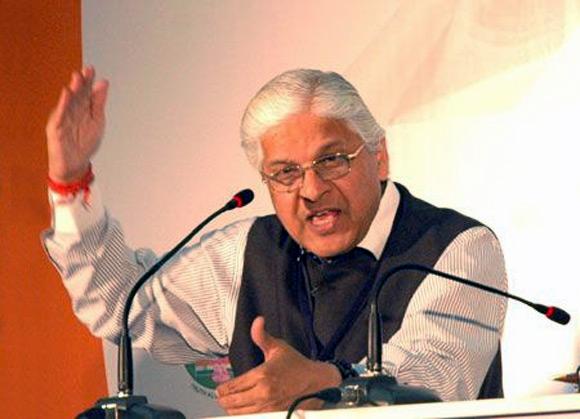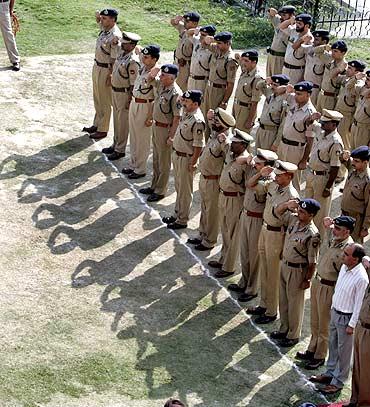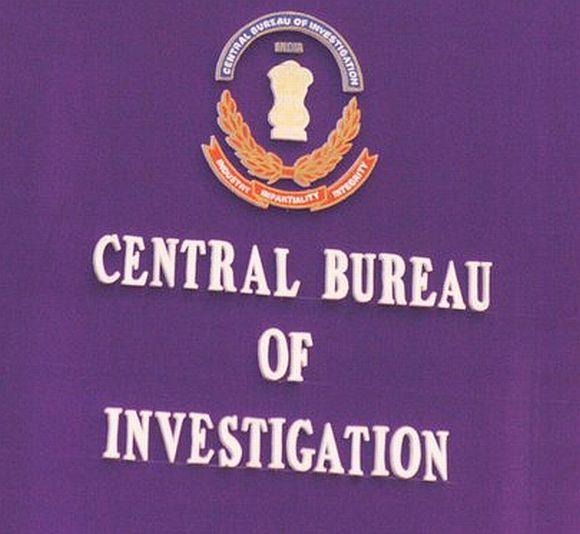Gyan Varma in New Delhi
Arun Bhagat, former Central Bureau of Investigation additional director and Intelligence Bureau retiree tells Gyan Varma that the CBI has never been autonomous, thanks to government interference in cases involving important personalities
It was found recently that Central Bureau of Investigation Director Ranjit Sinha showed the status report on the probe into the coal allocations to Law Minister Ashwani Kumar, the Prime Minister's Office officials and the coal ministry. Is this a normal practice for the CBI to share reports with the ministries and departments being investigated?
The procedure that we followed in the CBI was referring complicated legal matters to the law ministry. I don't know if there is an order in existence, but the practice was that any submission made to the Supreme Court had to be approved by the law ministry. But as you know, the apex court asking for the CBI investigation is something relatively new. I think it was started in the Vineet Narain case where a few diaries were found containing some important names.
Let us go back to the Vineet Narain case.
The judgment in the 1997 Vineet Narain case was authored by former Chief Justice of India J S Verma in the wake of massive hawala scams. It laid down guidelines to ensure independence and autonomy of the CBI. The verdict called for transparency in the selection of the CBI director and put the Central Vigilance Commission in superintendence over the CBI.
The verdict had endorsed the Centre's views that "the ultimate responsibility for the functioning of these agencies to Parliament is that of the minister concerned" and he will have the power to review their working. The minister also has the power to call for information on progress of cases. Justice Verma had noted that the minister's power to review the working of the agencies and to give broad policy directions over their functioning was not to be diluted by his verdict.
But there were some grey areas that needed clarification, and these may be forthcoming now. What is the minister's power to "call for information regarding progress of cases"? Does this mean the powers of investigation of the CBI should be suborned? These questions will clarify the future conduct of the CBI.
...
'All police organisations should become independent'
The actions of the CBI director have raised concerns about the organisation's autonomy. Sinha has said the CBI is dependent on the government. In your opinion, is the CBI an autonomous organisation or is this a myth? Did you face political pressure to share information during your tenure?
Clearly, the CBI has never been autonomous. There has been government interference in cases involving important personalities. Now, retired CBI directors one after the other are saying they were never independent. There is dependence because all the funds are controlled by the department of personnel, and because it's a weak legal wing, it has to take the law ministry's help.
Does the sharing of the status report on the coal case prove the opposition parties' allegation that the investigative agency is merely a tool in the hands of the government?
This is for the Supreme Court to conclude. It has asked for a report, and the judgment will probably be out on May 6.
Do you suggest that the CBI should be made a constitutional or a statutory body to end government interference?
I would say not only the CBI, but also all police organisations everywhere in the country should become independent. They cannot continue to be arms of the administration; they should become arms of law and justice. In many countries, the prosecutor plays a big part in the investigation. This procedure is prevalent in Europe as well as in the US. But in India, it's seen that the accused is frequently making the charge that he is being framed by the police at the behest of a politician.
The opposition parties had demanded that Sinha should not be made the CBI director and wanted his appointment to be cancelled...
I believe his appointment conforms to the existing rules. Of course, the opposition has different reasons for making certain demands, but I don't think there was illegality as far as the appointment was concerned. And he should complete his term, unless now the Supreme Court has something to say in this case.
...
'Political leaders do not want to give up their control over CBI'
You had petitioned in the Supreme Court for the creation of an independent civil services board or commission both at the Centre and the state levels, with fixed tenures for civil servants, to ensure stability and insulation from political pressure...
I think this has become a necessity, particularly in the states. It's found that in the Centre, there is still close scrutiny. Of course, there are many political decisions that may not have been very appropriate, but were necessary for political reasons. The state administrations -- without naming any one state -- try to put pressure on officers because that's one way of breaking their will and to get them to succumb to their will, as well as frequent transfers and postings take place, which are not merited. Often, someone who does not even qualify for a certain post is given the charge.
A Bill pending in Parliament for more than a year talks about overhauling of the CBI, and reveals how postings and transfers are frequently made within the organisation. Do you think it will ever become a reality
It seems the political set-up is not interested because in the states, it wants the police to be subservient to the establishment. Similarly, for the CBI, the political leaders do not want to give up their control.
How difficult it is for the CBI to get the permission required to start an enquiry against senior government servants -- since a special permission is needed to investigate joint secretaries and above -- given both 2G spectrum allocation and coal block allocation cases involve senior government officials?
I would repeat my point here: it does become a tool in the hands of the government. It's a powerful tool because the government can deny investigations, or just delay the matter somehow. But certain judgments and amendments in the law are being made that will require the sanctioning authority to give its decision within a stipulated period.
The solicitor general has said Prime Minister Manmohan Singh was not aware of the meetings between the law minister, the PMO officials and the CBI director on the coal case status report. Is it possible the prime minister didn't know something that the PMO officials were aware of?
Well, the PMO officials may be aware of the status report, but I don't think it would be unusual to say the prime minister was not informed because these are routine matters; though in this case, it carries a special significance. But, normally, the meetings that are attended by junior officers, neither the minister concerned nor the prime minister is informed. There is so much interaction that it is really not necessary.





article